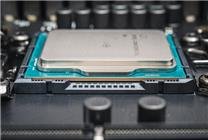Nvidia CEO Warns of Consequences from Exclusion in China: Implications for the U.S. Economy
Summary:
- Nvidia’s CEO emphasizes the need for the U.S. to maintain access to the Chinese market for AI chip sales.
- Exclusion from China could harm the U.S. economy more significantly than it affects China.
- A loss of access to Chinese AI developers poses a long-term threat to American technological leadership.
In a recent statement following the GTC Developer Conference in Washington, Nvidia’s CEO, Huang Jenxun, expressed serious concerns regarding the potential ramifications of continued exclusion from the Chinese market. He emphasized that the restrictions imposed by the United States could ultimately hinder Silicon Valley’s dominance in the artificial intelligence (AI) sector.
Huang articulated a crucial point: "If the United States maintains its ban on the sale of American-made AI chips in China, the repercussions will be felt more acutely in the U.S. than in China." His warning underscores the importance of international collaboration in technology, particularly in a world increasingly driven by AI advancements.
"A robust technological ecosystem requires engagement with global markets," Huang stated. He insisted that American companies must have a presence in China to cultivate relationships with developers there. According to Huang, any U.S. policy that effectively sidelines American companies from engaging with half of the world’s AI developers is detrimental not just in the immediate term, but poses long-lasting implications for the industry’s future.
In a significant policy shift earlier this year, the Trump administration reached an agreement allowing Nvidia to export its H20 chips to China. However, this development was overshadowed by investigations into Nvidia’s business practices, leading to scrutiny over potential antitrust violations. Huang noted that the market dynamics have changed drastically since then. Nvidia’s commanding market share in China, once at a robust 95%, has plummeted to zero, indicating a sharp decline in the company’s influence within this critical market.
The importance of maintaining a foothold in China cannot be overstated. The nation represents a substantial market for AI technologies, filled with opportunities for growth and innovation. By losing access to this market, U.S. companies not only risk diminishing their competitive edge but also compromise the potential for collaborative advancements that benefit both markets.
Huang’s perspective aligns with broader concerns about the U.S. tech industry’s future. As competitors from other regions, especially Asia, continue to emerge, the risk of falling behind in the global AI arms race becomes palpable. To ensure ongoing leadership in technology, American companies must actively engage with international developers and markets.
As the dialogue around technology trade policies evolves, Huang’s insights serve as an important reminder of the complexities involved. The interdependence between markets requires a balanced approach that fosters innovation while protecting U.S. interests. If policymakers impose restrictions without considering market realities, the outcomes may be more damaging than anticipated.
In summary, Nvidia’s position in China and the broader implications of their market exclusion merit careful consideration. The dialogue surrounding technology trade policies must evolve to ensure that American companies can continue to compete effectively on a global stage.
This editorial takes a rounded approach to the implications of exclusion from the Chinese market, positioning Nvidia’s concerns within a broader context of international technology competition. By emphasizing the need for U.S. leadership and the importance of engaging with global markets, the editorial aligns well with current trends in technology and international relations.







